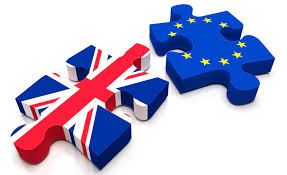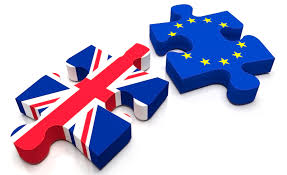
What happens after UK’s historic decision to end its 43-year love-hate relationship with the European Union?
Firstly it would be the task of the present British government, the Prime Minister David Cameron, the civil service led by the cabinet secretary Sir Jeremy Heywood and with the governor of the Bank of England, Mark Carney to bring a semblance of shape to the chaos that is likely to ensue.
The British Prime minister has announced that he would only remain in power till the Conservative party leadership election in the autumn but carry out the fall out of the Brexit referendum till then. However this creates a sense of instability in the political environment in the UK till such time as a new Prime Minister takes charge.
Secondly the locus of political authority in the UK has been thrown in dispute as the vast majority of MPs and peers are pro-Europeans and they have been proven to be out of step with public opinion. On the other hand just a handful – around 200 in the Commons has been shown to speak for the people and have a link with what the people want. There can be demands for fresh national elections because of this.
The political and economic instability is further accentuated by the announcement of Cameron that article 50 would not be triggered until the new Prime Minister takes office. This means that formal negotiations with the European Union about the UK formally leaving the EU would not begin until at least October. Till such time the status of the workers from other EU countries in UK as well as Brits working in other EU countries would not change as would the free movement of people and goods.
UK would be able to formally leave the UK after the support of the UK and a “qualified majority” of the remaining 27 member states specifically, 20 of them, comprising at least 65% of their population, is obtained.
However UK automatically reverts to World Trade Organization rules if at the two years’ end neither a deal nor an extension has been agreed. This means that in two years time, UK will face tariffs on all the goods it sells to the EU.
After Brexit, there can be problems within the remaining 27 countries in the EU. There is possibility that a group possibly led by the Poles, may explore whether the terms of the negotiation between the EU and the UK could be reopened and another may urge the EU to demand that the UK triggers article 50.
However UK negotiations were finished in February and the majority of the EU view is likely to be that ship has sailed. “Cameron got the maximum he could receive and we gave the maximum we could give. So there will be no renegotiation, not on the agreement we found in February, nor as far as any kind of treaty negotiations are concerned,” the commission president, Jean-Claude Juncker, said before the vote.
Talks and negotiations with the Irish government, the Commonwealth, Nato and innumerable other bodies would have to be started by the UK apart from the procedures stated above. The chemistry of the relationship between the UK and Europe post-Brexit will largely determine the success of these complex negotiations.
The possibilities of calls for parallel referenda in the Netherlands, France, Poland or Hungary are also being talked about.
Internally, UK would also have to focus on issues like pension liabilities, properties and other assets, and deal with budgetary questions. The rights of EU nationals based in the UK and vice versa would also be covered. One of the major problems for the UK based financial firms that could appear is whether they would lose their EU “passport” which allows firms registered in one member state to do business across the bloc without needing further authorization.
(Source:www.theguardian.com)
Firstly it would be the task of the present British government, the Prime Minister David Cameron, the civil service led by the cabinet secretary Sir Jeremy Heywood and with the governor of the Bank of England, Mark Carney to bring a semblance of shape to the chaos that is likely to ensue.
The British Prime minister has announced that he would only remain in power till the Conservative party leadership election in the autumn but carry out the fall out of the Brexit referendum till then. However this creates a sense of instability in the political environment in the UK till such time as a new Prime Minister takes charge.
Secondly the locus of political authority in the UK has been thrown in dispute as the vast majority of MPs and peers are pro-Europeans and they have been proven to be out of step with public opinion. On the other hand just a handful – around 200 in the Commons has been shown to speak for the people and have a link with what the people want. There can be demands for fresh national elections because of this.
The political and economic instability is further accentuated by the announcement of Cameron that article 50 would not be triggered until the new Prime Minister takes office. This means that formal negotiations with the European Union about the UK formally leaving the EU would not begin until at least October. Till such time the status of the workers from other EU countries in UK as well as Brits working in other EU countries would not change as would the free movement of people and goods.
UK would be able to formally leave the UK after the support of the UK and a “qualified majority” of the remaining 27 member states specifically, 20 of them, comprising at least 65% of their population, is obtained.
However UK automatically reverts to World Trade Organization rules if at the two years’ end neither a deal nor an extension has been agreed. This means that in two years time, UK will face tariffs on all the goods it sells to the EU.
After Brexit, there can be problems within the remaining 27 countries in the EU. There is possibility that a group possibly led by the Poles, may explore whether the terms of the negotiation between the EU and the UK could be reopened and another may urge the EU to demand that the UK triggers article 50.
However UK negotiations were finished in February and the majority of the EU view is likely to be that ship has sailed. “Cameron got the maximum he could receive and we gave the maximum we could give. So there will be no renegotiation, not on the agreement we found in February, nor as far as any kind of treaty negotiations are concerned,” the commission president, Jean-Claude Juncker, said before the vote.
Talks and negotiations with the Irish government, the Commonwealth, Nato and innumerable other bodies would have to be started by the UK apart from the procedures stated above. The chemistry of the relationship between the UK and Europe post-Brexit will largely determine the success of these complex negotiations.
The possibilities of calls for parallel referenda in the Netherlands, France, Poland or Hungary are also being talked about.
Internally, UK would also have to focus on issues like pension liabilities, properties and other assets, and deal with budgetary questions. The rights of EU nationals based in the UK and vice versa would also be covered. One of the major problems for the UK based financial firms that could appear is whether they would lose their EU “passport” which allows firms registered in one member state to do business across the bloc without needing further authorization.
(Source:www.theguardian.com)





